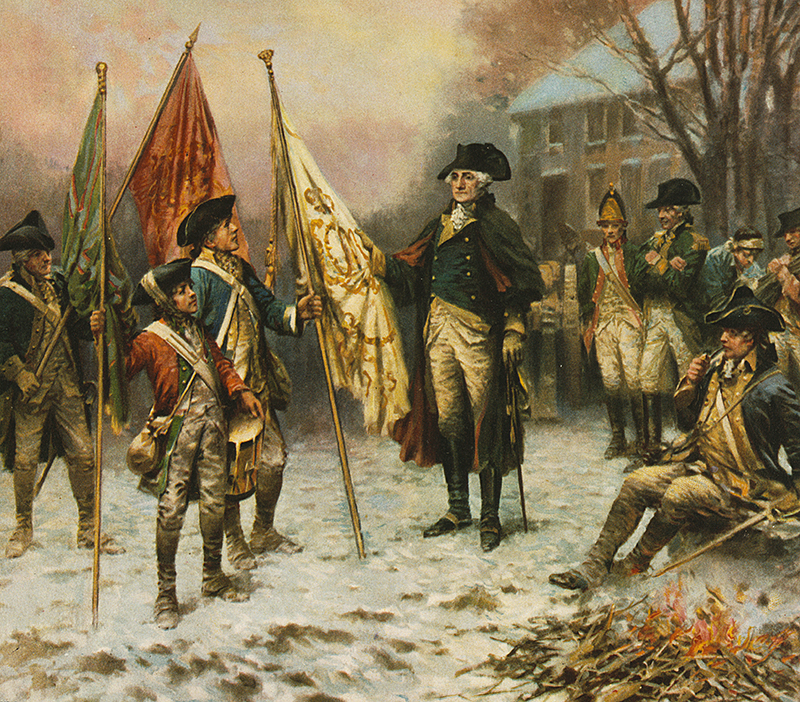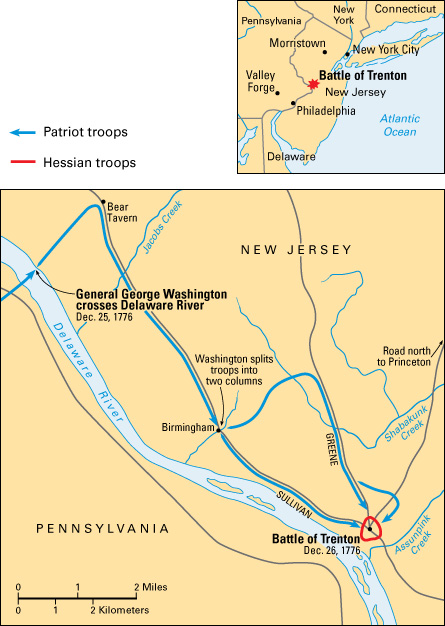Trenton, Battle of, was an important American victory over the British during the American Revolution (1775-1783). The battle took place on Dec. 26, 1776, at Trenton in the colony of New Jersey. The night before, on Christmas night, American General George Washington and his troops crossed the Delaware River, moving from Pennsylvania into New Jersey. Washington’s crossing of the Delaware was a bold and risky operation that has since become famous. After marching through the night, Washington’s troops caught the British-allied defenders of Trenton by surprise. The Americans took hundreds of prisoners.

The Battle of Trenton marked a turning point in the American Revolution. In late 1776, many Americans had lost faith in the war effort. Washington’s army had retreated from New York, and many of his soldiers had died, deserted, been captured, or fallen ill. He had crossed the Delaware River into Pennsylvania and rallied his forces there. By December 20, Washington’s army numbered about 6,000. The general needed a victory to revive his troops’ morale.
On the night of December 25, Washington crossed the icy Delaware River into New Jersey, landing north of Trenton. He led a group of 2,400 soldiers and 18 cannons south toward the town. About 1,500 Hessians defended Trenton. The Hessians were German soldiers who were hired by the British.

Washington split his force into two columns. Major General Nathanael Greene attacked Trenton from the northeast, and Major General John Sullivan attacked from the north. Washington had also stationed some of his troops to prevent a Hessian escape and to keep reinforcements from reaching the British.
Trenton’s defenders were worn out from responding to numerous raids by the New Jersey militia, and the attack surprised them. The Americans captured about 900 Hessians and killed or wounded about 100. About 500 escaped. The Americans suffered only about 10 casualties. Future president James Monroe, then a lieutenant, was one of the Americans wounded.
About a week after the battle, Washington led the Americans to victory at Princeton, New Jersey. The victories at Trenton and Princeton revived American hopes and boosted Washington’s reputation as a military leader.
